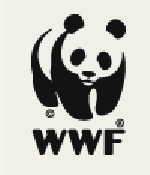Major Responsibilities: Under the direct supervision of the Senior Manager-Field Programs, the Knowledge Management Specialist takes overall responsibility of implementing WWF Nepal’s learning and knowledge management strategy at both project and organizational levels. S/he will be primarily responsible for facilitating critical review and reflection using learning tool-kits, and building capacity of program staff in mainstreaming learning and knowledge management within their programs.
Qualifications: A Masters’ degree in related field of study is required. The candidate must have a minimum of 6 years work experience of which at least three years should be in knowledge management. S/he should have notable experience in field-based monitoring & evaluation together with strong facilitation, data analysis and critical thinking skills. The candidate should be willing to travel to the field and should possess good organizational and interpersonal skills.
Interested applicants are requested to download the application form and send the same with an application letter to the email address hr@wwfnepal.org.
Please mention the position you are applying for as the subject. Emails without an application letter and completed application form will not be entertained. Only shortlisted candidates will be informed. Detailed TOR for the mentioned position can be downloaded.
This Job is expired. The Company is no longer accepting applications for this position.
WWF is the world’s leading independent conservation organization originated from Switzerland in 1961 and currently running in more than 100 countries across 6 continents. The program started from conservation of wildlife to broader concept of building future where humans can live in harmony with nature. WWF has created 1,480 ecoregions that categorize the world into its natural ecosystems. Nepal with Bhutan, northeast India, southeast Tibet and northern Myanmar, falls under the Eastern Himalaya region housing the threatened species Snow Leopards, Bengal Tigers and One-horned Rhinos.
It was in 1967, WWF initiated WWF Nepal with a rhino conservation program in Chitwan. To keep up with the evolving face of conservation and environmental movement, WWF Nepal’s focus progressed from its localized efforts in conservation of single species in 1960s, integrated conservation and development approach in 1990s, to a new horizon of landscape level conservation encompassing national, regional and global scales of complexity in early 2000s.
